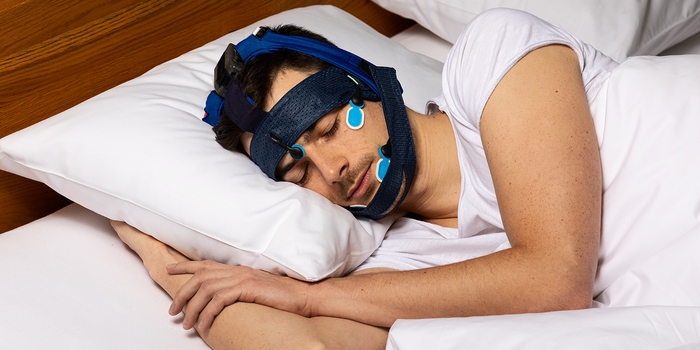Scientists develop headband to improve deep sleep and help regenerate brain and memory
Device created by Swiss researchers could be given to patients who have trouble sleeping, reports Aisha Rimi


Scientists have created a wearable device designed to help users get a better night’s sleep by stimulating their brain with sounds.
The first clinical study of the device, known as SleepLoop, involved 16 participants aged 60 to 80 in a study by researchers at Swiss university ETH Zurich. It found auditory stimulation helped users remain in deep sleep.
The device is worn on a headband and measures the wearer’s brain activity throughout the night. When slow waves are detected, it shows the person has entered deep sleep and triggers a clicking sound.
This helps synchronise the neuronal cells in the brain, but the wearer is not consciously aware of the sound while asleep.
The study, published in the journal Communications Medicine, concluded the device “worked very well”. The headband was designed to function independently even by users with little technical experience and participants were required to operate themselves in their own home.
“We had surprisingly little data loss and the participants rated the device as user-friendly,” said Caroline Lustenberger, group leader at the Neural Control of Movement Lab.
Participants wore the device every night for a total of four weeks, with the auditory stimulation given on a nightly basis for two weeks and no stimulation for the next two weeks.
Neither they nor the researchers knew in which two weeks the auditory signals were played and in which two they were not.
Most of the 16 participants showed enhanced slow waves during sleep while the headband was active, but not all.
“Some people generally responded well to the stimuli and clearly showed enhanced slow waves, while others showed no response, regardless of their daily well-being,” said Ms Lustenberger.
Many people, especially the elderly, suffer from abnormal sleep. In particular, the deep sleep phases become shorter and shallower with age. Deep sleep is important for the regeneration of the brain and memory, and also has a positive influence on the cardiovascular system.
“This is a medical device, not just a wellness consumer product you can order online when you have trouble sleeping,” said Walter Karlen, who developed the technology at ETH Zurich.
“Use of the device must be medically indicated and supervised by a doctor”, he added.
Further development of the system will now continue in Ulm, southern Germany.






Join our commenting forum
Join thought-provoking conversations, follow other Independent readers and see their replies
Comments